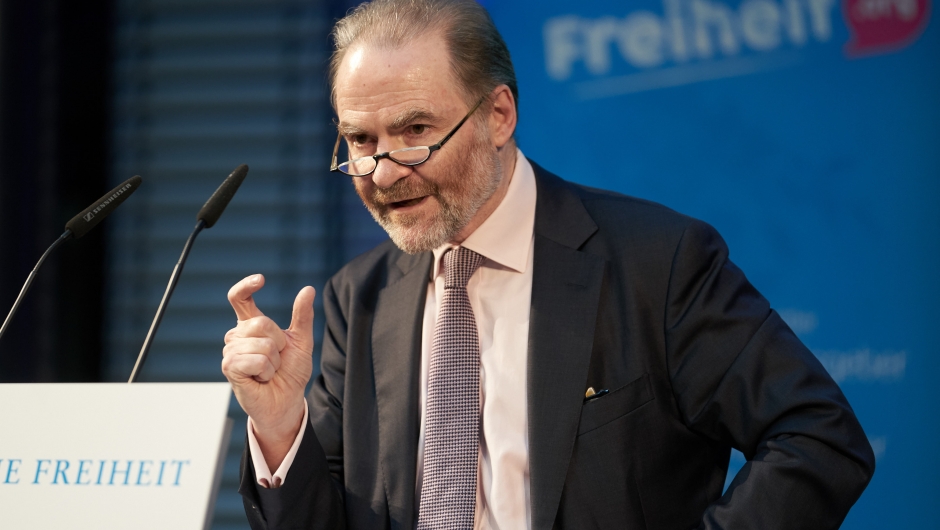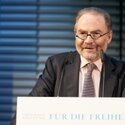The Feeling of Freedom

Freedom Speech with Timothy Garton Ash
©“For Freedom's battle once begun, // … // Though baffled oft is ever won.”
“Der Freiheit Kampf einmal begonnen // … // wird immer, wenn auch schwer, gewonnen.“
These are the lines Timothy Garton Ash, a British Historian and writer, found in 1980 on a scrap of paper in the Lenin Shipyard in Gdańsk. They not just deeply impressed him then, they are also one of the reasons he has made the various aspects of freedom and their meaning the topic of his life. Guests as the 12th Berlin Speech on Freedom could feel the personal passion Garton Ash sees behind the concept of freedom. A passion that, along with his intellectual quality, expressiveness, and broad erudition, makes him the perfect speaker for this year's edition of the traditional event, according to the introductory remarks offered by Wolfgang Gerhardt, the Chairperson of the Friedrich Naumann Foundation for Freedom.
“If you have experienced freedom you have not forgotten, and you never will.”

Self-Critical Fighters
In this time of “anti-liberal counter-revolution in the form of reactionary populism” all liberals have to be “self-critical fighters”, Timothy Garton Ash exhorts. Liberalism has made a few errors: the reduction on economic aspects, its elitist comportment, and finally its abstract technocratic rhetoric, according to Garton Ash.
The logical consequence was a “pseudo-liberal restriction of discourse in which certain alternatives were simply not discussed anymore”. A serious mistake, according to the recipient of the 2017 Charlemagne Prize.
The question “What to do?” has two answers, according to Garton Ash. One the one hand, liberalism has to become more three-dimensional. On the other hand, Europe has to regenerate its normative power.
The French Triade
The French principles of “Liberté, egalité, fraternité” are what the British historian refers to as three-dimensionality of liberalism. The latter two aspects in particular have been pushed into the background, Garton Ash says. But “equality of regard and respect” and a “sense of community” are as much part of modern liberalism as its conventionally libertarian values.
As a solution to Europe's current weakness, Garton Ash suggests a stronger link of the economic union with a union of values. Not an easy task, he admits, “but we can clearly see what's at stake” — “I believe that we are looking at years and decades of curtailment of freedom in parts of Europe and possibly globally. But serfdom will not win if we fight”.
“If you keep denying there is any alternative, the alternative you eventually get is the Alternative for Germany.”

The Ship of Freedom
And so the Oxford professor looks ahead with optimism, in spite of all the challenges, because “there are thousands upon thousands who are fighting for freedom, and millions upon millions who would choose more freedom if they had the chance. The ship of freedom will not sink”.
Just as in previous years, this special Foundation event sold out quickly. Many people therefore followed the speech on freiheit.org or on via the live stream on the Foundation's Facebook page. Under the hashtag #RZF18, pictures and impressions were shared on the social networks too. All those who did not have the opportunity to be there in person can view a recording of the livestream here.
Since 2007 notable figures from political life, science and the arts have made contributions to the discourse of liberty in the Speeches on Freedom. Previous speakers at the Foundation event, held each year in spring at the Brandenburg Gate, include Udo di Fabio, Heinrich August Winkler, Joachim Gauck, Paul Nolte, Peter Sloterdijk, Karl Kardinal Lehmann, Gabor Steingart, Mark Rutte, Zhanna Nemzowa, Ryszard Petru, and Christian Lindner. Additional information, all videos and articles on the Speeches are available on the thematic page.